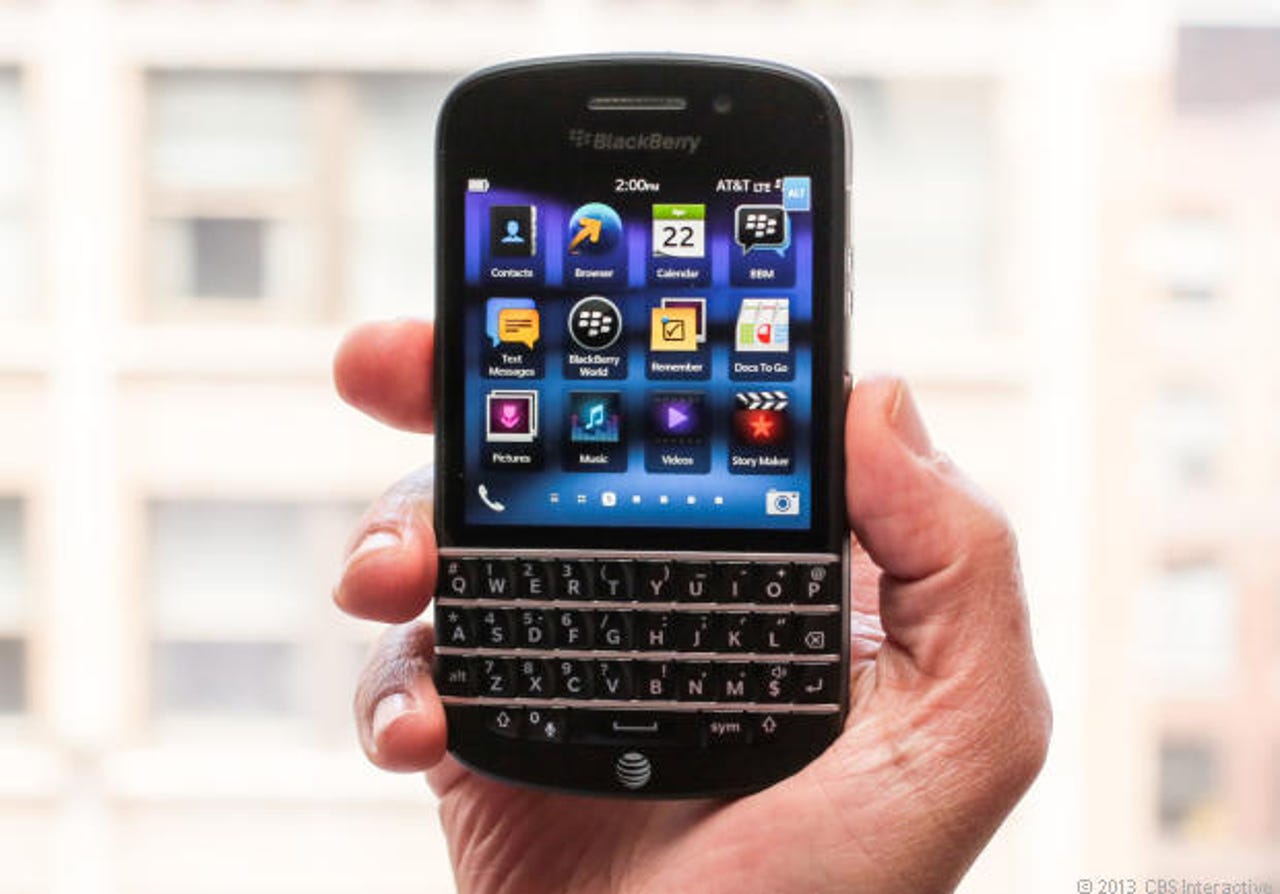Down but not out: Two companies reveal why they're sticking with BlackBerry


BlackBerry, the smartphone maker that once dominated the corporate device world, is attempting to stage a comeback. Recently appointed CEO John Chen wants to repeat the miracle he performed in returning the then-struggling Sybase to profitability by helping BlackBerry re-establish its position in the smartphone market.
BlackBerry's Italian subsidiary is undergoing some changes. Alberto Acito, managing director for south-east Europe, left the company in January and has not yet been replaced. There are also rumours of a further reduction in staffing from the current 50 employees to 30, although there has been no official confirmation from the company.
The future of BlackBerry's operations in the country will depend on whether Chen's strategy of refocusing on the secure corporate network business, on new low-cost smartphones (such as the Z3 launched at the MWC trade show last month) and on BlackBerry's iconic Qwerty keyboard, pays off. It's still early to say how the strategy will fare in the long term, but some Italian companies have recently given the company a vote of confidence.
During MWC, BlackBerry announced a number of deals with both new and existing customers; three of them — Air Dolomiti, Banca Ifigest and Tokheim — are Italian. The first is a mid-sized airline company with approximately 550 employees, the second an independent bank based in Florence, while the third is a large gas pump company.
"We've been using BlackBerry's products for almost 10 years," Tokheim manager Corrado Fasano told ZDNet. "At first it was used mainly by managers for sending email, but in time the number of devices has grown and now we have almost 150 of them; all of our technicians that perform maintenance operations at gas stations have been given one."
What is particularly appreciated by Tolkheim managers is the perceived security of BES 10 (BlackBerry middleware that allows devices to access messaging and collaboration software, and synchronises content between enterprise servers and smartphones).
Tech Pro Research
BlackBerrys' physical keyboard is also still perceived as a plus. "We had some complaints from our employees when we switched to the 9900 model, as the touchscreen did not really add value and the devices were less robust and reliable, but we had positive feedback again when the Q5 and Q10 models were introduced," Fasano said.
Ease of use, the keyboard and BES also seem to be factors that convinced Air Dolomiti to migrate their existing BlackBerry devices to new BlackBerry 10 models.
"We tested alternative solutions, both on iOS and Android, but BES was much easier to manage and we also appreciated that it has now added the option to sync devices running other operating systems," the company's ICT director Fabio Biancotto said. "Before, some managers might own an iPhone and you had to set up a separate network for those devices, but now it's no longer necessary."
That BlackBerry shared information with the company, letting staff know about its plans for future developments, was also particularly appreciated. "We were alerted in advance about the introduction of new pricing levels and about the Android compatibility of the new firmware. That helped us to relax and be confident about our partnership," Biancotto said.
Air Dolomiti owns roughly 430 devices, mostly Q5s for the air-side staff that need to stay in touch through email and appreciate a physical keyboard, and Z10s for the managers who need a larger display to view documents and presentations.
"For us the security features are not as important as for, say, a pharmaceutical company," Biancotto said, "We do not deal with sensitive information. But we do appreciate the fact that on our devices it's easy to set up a personal area and keep it separate from your work applications."
Privacy and security nonetheless remain one of BlackBerry's distinctive features, and in a time when hacking and spying are no longer niche concerns but ones that make headlines thanks to Edward Snowden, this could well prove a valuable competitive advantage.
This holds true not only for data storage and traditional email communications, but following Snapchat's data breach and Facebook's WhatsApp acquisition (which boosted concerns about how Zuckerberg's company will manage users data), for instant messaging as well.
Diego Ghidini, business sales director of BlackBerry Italia, recently mentioned a case where an Italian company (which he would not quote by name) had been using BES to protect its email. "They later discovered that a large part of their staff also communicated via instant messaging applications, and that kind of communication was not protected," he said. Such instances provide a good opportunity for BlackBerry to push adoption of its BlackBerry Messenger product for internal use.
BBM is well-known for its safety features — especially the fact that you don't have to share your phone number to communicate, but you are given a personal identification number instead — and it's another legacy asset Chen is trying to exploit to reinvigorate the company.
If Italy's any indication, Chen might want to try to market BBM not only as a private consumer tool, but as an instant messaging platform for businesses as well. Oh, wait a minute...